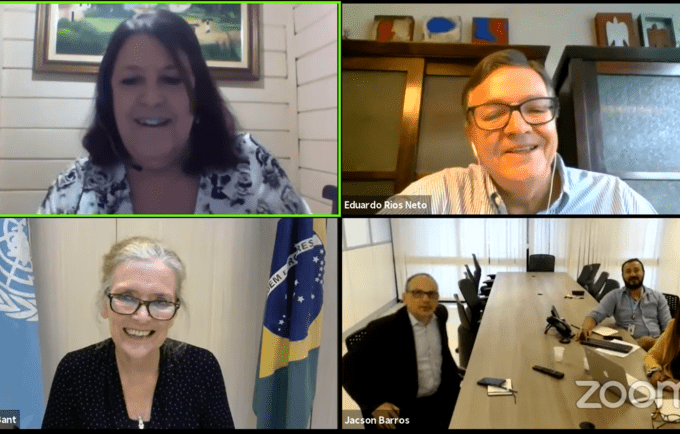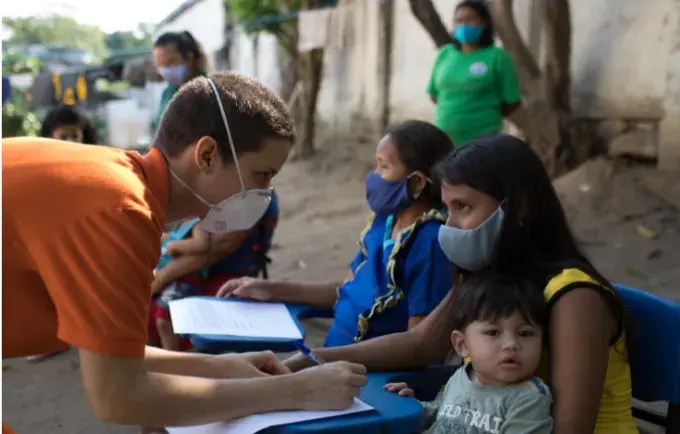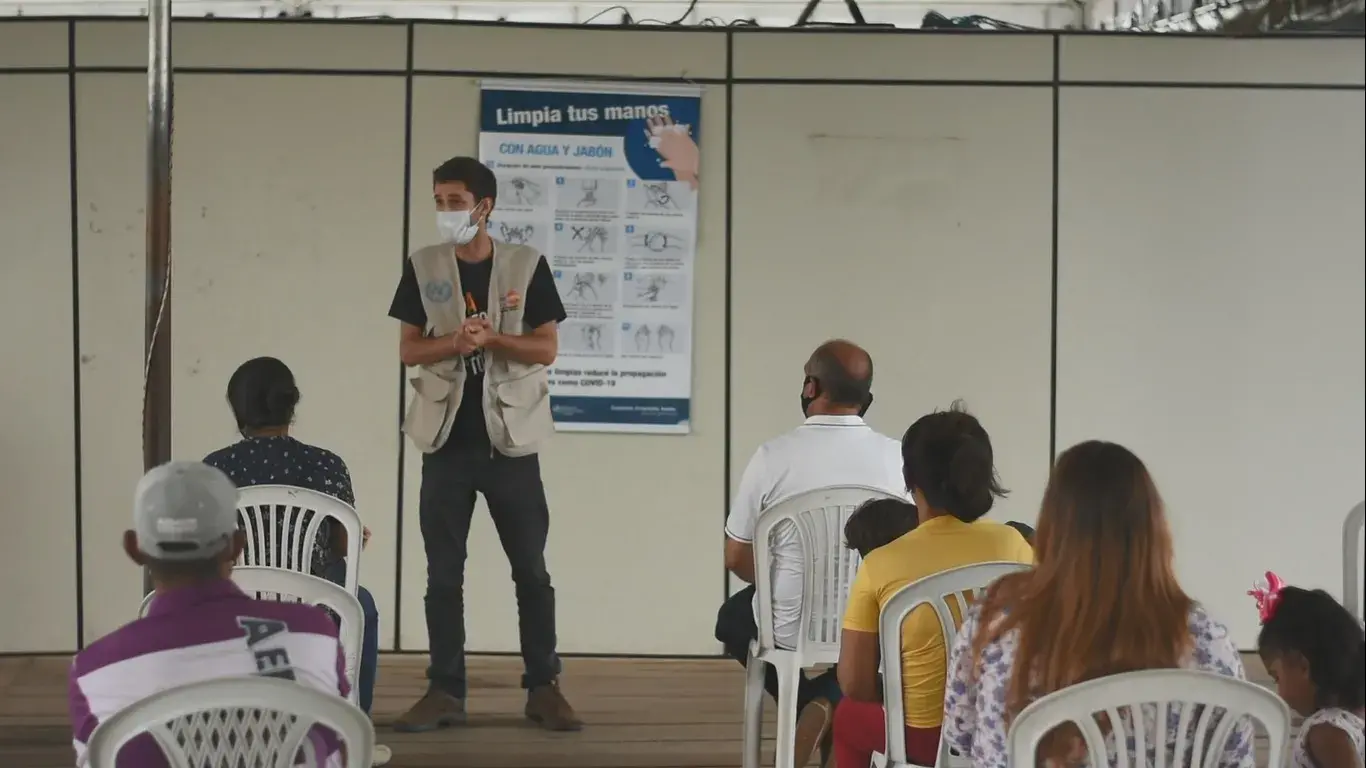A live webinar organized last Wednesday (29) by UNFPA Brazil and the Brazilian Association for Demographic Studies (ABEP) aimed to promote a debate between the academy, government and social civil society about the production of population data and information as the COVID-19 pandemic continues in Brazil.
More than 300 people followed the discussion streamed live on UNFPA Brazil’s channel on Youtube. The webinar was conducted by the speakers: Eduardo Rios-Neto, director of researches of the National Statistical Institute (IBGE); Jacson Barros, director of the data processing department of the national health system/Datasus/Ministry of Health, and Márcia Cavallari Nunes, CEO of the IBOPE Inteligência. The presentation and mediation were conducted by the representative of UNFPA Brazil, Astrid Bant.
To Astrid Bant, the pandemic has been demanding new efforts to the institutions responsible for population data. “We are following the fast evolution of the new coronavirus pandemic across the world. The strong dissemination of the virus has brought many challenges to the field enumeration and statistical processes. Many countries, including Brazil, postponed their census round and adapted the census enumeration to internet-based data collection”, said ms. Bant.
The director of the National Statistical Institute (IBGE) Eduardo Rios-Neto approached the postpone of the Census Round 2020 to 2021. “It was a very tough decision but, because of COVID-19, the IBGE has stopped all field enumeration”. Rios-Neto also commented about the measures adopted by the National Institute to keep the population data enumeration on distance. “We made a great effort to adapt the national household sample survey, from a traditional field enumeration, to a phone method. The March sample is already concluded and we hope to keep doing it this way”.
According to the data processing department (DATASUS) of the Ministry of Health, the field enumeration process has also not been easy in this period, as revealed by Jacson Barros, director of the computing department. “As we are in the front line, we had some trouble in responding to emergencies that came along, but it was also a moment to try new initiatives, such as the TeleSUS, a chatbot to evaluate health and answer questions about the COVID-19”, he said.
The phone method was also one of the solutions of IBOPE Inteligência to keep the data collection, said Márcia Cavallari, CEO of the organization. “Some sample surveys that were already being planned could easily be adapted to the phone or online method. Other complex surveys that demand more, however, were suspended and we are waiting to continue these projects”, she concluded.
Every week, the “Development and Population Debate” series promoted by UNFPA Brazil and ABEP will organize similar discussions between the academy, government and social civil society about interesting themes of the agenda in front of the pandemic. In the next edition, the webinar will approach the theme: “Gender-based violence and the COVID-19: evidence, surveillance and attention”.
You can watch the first webinar, in Portuguese, here.
To sign up for the next webinar and receive a participation certificate and also the content presented during the event, follow UNFPA Brazil profile on Sympla Plataform:
https://www.sympla.com.br/unfpabr





